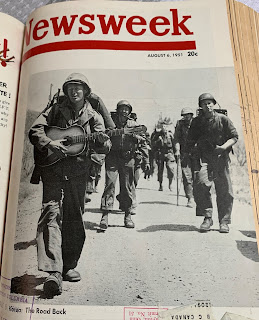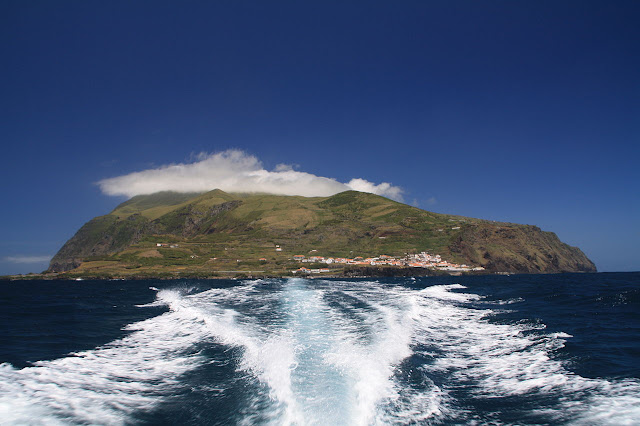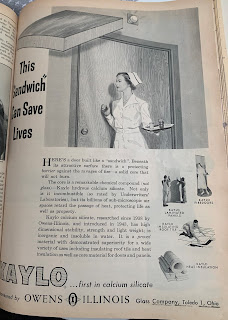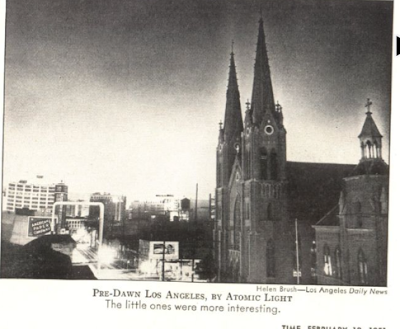Bench Grass is a blog about the history of technology by the former student of a student of Lynn White. The main focus is a month-by-month retrospective series, covering the technology news, broadly construed, of seventy years ago, framed by fictional narrators. The author is Erik Lund, an "independent scholar" in Vancouver, British Columbia. Last post will be 24 July 2039.
Popular Posts
- Gathering the Bones, 18: Hew Down the Bridge!
- Postblogging Technology, October, I: Forest for the Trees
- The Bishop's Sea, III: The Real Presence
- Postblogging Technology, November, 1943: Caesar's New Clothes
- Postblogging Technology, November 1950, II: Platypus Time
- Postblogging Technology, March 1944, I: Pulling In the Horns
- Postblogging Technology, December 1950, II: Christmas Corps
- I Would Run Away to the Air: The British Economy, Montgolfier to 727, Part 1
- A Techno-Pastoral Appendix to Postblogging Technology, October 1950: The Chestnut Plague
- Gathering the Bones, XXIII: Wyandotte Days
Saturday, December 25, 2021
Postblogging Technology, September 1951, I: The Age of Inflation
Saturday, December 18, 2021
A Technological Appendix to Postblogging, July and August 1951: The Avon State
Way back in the 28 July number, The Economist wrung its hands, as The Economist was wont to do, over the aero-engine problem. This is a problem that, as far as I know, no-one else has ever heard of, but which is well worth another look, once extracted from my historicised postblogging voice and given the longer perspective that history of technology has denied it. It seems especially pressing when I am preparing to postblog September. We have a new month's worth of handwringing to deal with, this time over "the inflation state," Attlee calling the election, and the annual Farnborough show. I can't help but think that the last two are linked, that one reason The Economist is banging on about airplanes so much is that the Farnborough show has turned into a very exciting demonstration that the Attlee government is doing something right. It would, as usual, blow The Economist's cover to be too down on Farnborough and planes, in general, but one can get there by a short detour if the flesh is willing.
Thursday, December 9, 2021
The Bishop's Sea: Fine Corinthian Leather
There's something a little unfair about remembering a great actor and a great guy like Ricardo Montalban for a tagline from a commercial, but, come on, "Fine Corinthian leather." It's hilarious, and it reminds us of a distant day when Mediterranean leather products had a cachet of quality that industrial leather from more northerly climates just could not match.
The product that comes immediately to mind when I think about this is chamois leather, which turns out to be a southwestern French product, but close on its heels in my free-associating mind is "Moroccan kid leather," an advertising tag rather than a specific industrial product. This turns out to be a specific product of exactly a national industry, "Morocco leather." Per Wikipedia, it was a goatskin product, usually dyed, especially associated with the port city of Safi, imported into Europe since long before the late Sixteenth Century, when it became the bindery leather of choice for expensive book editions. Not surprisingly given that it is sourced to an entrepot city, the Wikipedia article goes on to indicate that much Moroccan leather was not from Morocco at all, and singles out northern Nigeria as a source.
Which, sure, why not. But today I want to talk about the Canary Islands.
Thursday, December 2, 2021
Born For This Battle: An Update From the Leading Edge
It's time for an update from the Carbon Crisis!
The North American craton has been heading west into the Pacific for some 200 million years. Atmospheric carbon dioxide levels only exited the historic regime during the Korean War. Both historic trends are important as we put November to bed on Canada's West Coast. The direct cause of the tricky situation in which the Lower Mainland of the province of British Columbia, home to 3 million Canadians, now finds itself is admittedly a climate-change driven weather event, but the actual problem we now have is related to the untidy way that our home tectonic plate has been sorting out the terranes it has been acquiring for the last few geological ages.
The story is that Two weeks ago, on November 14--15, a major weather system made landfall on the West Coast, and delivered an unprecedented, or almost unprecedented amount of rain to the region. The Nooksack River, which usually drains Mount Baker (Boeing's Mount Baker) directly into the Salish Sea, unburdened itself of the resulting floodwaters into its big brother, the Fraser, via a long-since reclaimed slough, the Sumas Prairie. The flat land of the area having had an irresistible attraction to freeway engineers, the result was the closure of the Trans-Canada as well as significant flooding in a lightly-populated but heavily farmed area. The exact impact of this on local supplies of milk, eggs, poultry, and Christmas trees are unclear at this point. Flooding also affected two towns in the watersheds on the lee side of the coastal mountains. Downtown Princeton was flooded by the rising Tulameen and its distributary, the Similkameen, itself a tributary of the Columbia via the Okanagan, while the town of Merritt on the Nicola, a tributary of the Fraser via the Thompson River, suffered an altogether more devastating flood when the flood breached the protection of the municipal waste water plant and knocked out all water services, forcing the complete evacuation of the community.
At the same time, heavy water loads on unstable slopes denuded by a devastating summer fire season, and high water in mountain creeks damaged highway infrastructure. By the end of the rainstorm on Tuesday afternoon, all four highways and both of the two railways connecting the Lower Mainland and the Port of Vancouver with the rest of Canada were closed. Two highways, 99 and 3, were reopened on Friday the 19th on a limited basis.
We have had two subsequent storms of equivalent magnitude, but as is not entirely uncommon with rain storms, without the same degree of devastation. Between emergency work on flood protection systems, and the blockage-clearing efforts of the first flooding, the rainfall of the subsequent storms was able to find its way to the sea without inconveniencing us too much. Unless something worse happens, this is the new normal for my province. And by this I mean a complete logistical fuckup, which I will explore in this post.
Sunday, November 28, 2021
Postblogging Technology, August 1951: New Armageddons or Happy Days?
Arcadia,
Santa Clara,
California
Dear Father:
Your Loving Daughter,
Ronnie
Sunday, November 21, 2021
Postblogging Technology, August 1951, I: Transistors: The Coming Thing?
Arcadia,
Santa Clara,
California
Dear Father:
Your Loving Daughter,
Ronnie
Monday, November 8, 2021
A Technological Appendix to July 1951, II: Cracks, Clerks, Picks
Saturday, November 6, 2021
Sunday, October 31, 2021
Postblogging Technology, June 1951, II: Dies and Transistors
Arcadia,
Santa Clara,
California
Dear Father:
Your Loving Daughter,
Ronnie
Sunday, October 24, 2021
Postblogging Technology, July 1951, I: To Be Born Into An Age Without Clerks
Arcadia,
Santa Clara,
California
Dear Father:
Your Loving Son,
Reggie
Thursday, October 14, 2021
Postblogging Technology, June 1951, II: In The Time of the Magnet
Magnets and electricity are funny things. The language of electromagnetism currently permeates our discourse. You think you know what you're talking about, and then, bam, it turns out that you don't. This is especially true of "amplifiers," which sound like blindingly obvious gadgets that give an extra oomph to an input current. There's all kinds of uses for a gadget that turns a small input into a large output. But that's not what they do at all, and it isn't until you understand what they actually do that you appreciate why conversations about historic amplifiers so often turn to logic gates.
Which turns out to be pretty important when everyone's talking about these new "computers" they have now. I have included a Kerrison Predictor, a very simple computing fire director, here because it contains a magslip element. Magslips are more often described as electric motors than as computing elements, probably because if we don't distinguish "control" from "computing" discussions about automation become impossible. Magslips also don't use the "one weird trick" that makes magnetic amplifiers possible. See? You think you know what's going on, and then the language betrays you!
Tuesday, October 5, 2021
Postblogging Technology, June 1951, with Bonus Political Thumbsucking: .280 British And Related Subjects
As the adrenaline leaks out of the Korean crisis, the technology question in June of 1951 is more clearly about boy toys than ever. The United States is in a full-bore Fokker panic over the MiG-15, and the first discussion of the JS-3 threat in the popular press suggests that the European theatre might actually be taking hold in the public consciousness in the way that Marshall Plan/Atlantic Pact enthusiasts have long hoped it would. It is, however, a strange crisis. It is going to be thirty years yet before anyone entertains the thought that the United States plus West Germany plus the United Kingdom plus France plus Italy plus various "show willing" powers might be expected to win a conventional war in central Europe; and, of course,
There is something unreal about the very idea of a conventional war between two nuclear-armed blocs. While we know from seventy years of political practice that the arms gap in central Europe is a pretext for a seemingly permanent argument over the size of the NATO partners' defence budgets, there is the curious fact that the United Kingdom is going to slowly decline from being a positive example of high defence spending to the much less credible status of defence moocher over this period.
I say curious because the nominal explanation for Europe's predilection for neglecting arms spending is its metrosexual leftism, but since when does that include Churchill's Conservatives? With four months to go to the British 1951 general election, it might be too early to make a partisan case, but it is certainly time to get the facts are in order; and in this case the facts also have some interesting things to say about the way we talk about technological praxis and racism.
Saturday, October 2, 2021
Postblogging Technology, June 1951, II: Let's Here More About Raw Material Controls!
Shaughnessy,
Vancouver,
Canada.
Dear Father:
Your Loving Son,
Reggie
Friday, September 24, 2021
Postblogging Technology, June 1951, I: Ramping Up For Production
Shaughnessy,
Vancouver,
Canada
Dear Father:
Your Loving Daughter,
Sunday, September 19, 2021
The Bishop's Sea: Our Ongoing Project of Building a Better, Stronger Past
Thursday, September 9, 2021
The Bishop's Sea: Seals and State Collapse in the Pre-Columbian
So after eighteen apocalyptic months, UBC Library is open this week, and while I did not visit my precious old journals, because of pure laziness, it turns out that I wouldn't have been able to see most of them due to the usual robot uprising.
Damn. Should have gone with that instead of copping to being lazy. Anyway, going to lean on the door marked "seals" and see where it takes us!
Saturday, September 4, 2021
The Bishop's Sea: Floating Proletariats and the Development of Underdevelopment
Sao Tome and Principe is an island state off the equatorial coast of Africa with an area of 1000 square kilometers, a population of 211,000, a GDP per capita of $1668USD and not much else to say about themselves. They were allegedly uninhabited when the Portuguese arrived around 1470, and in 1499, Felipe Fernandez Arnesto reports, the captain, Pedro Alvarez, wrote to complain about a shipment of new arrivals, Jewish orphans deported from Lisbon during the expulsion. There were, the Captain reported, only 50 colonists on the islands, mostly exiled criminals themselves, working a marginal sugar plantation, without a mill to support exports. They had no truck to trade for ivory and pepper on the mainland, little food, and had great difficulties securing wives. The rest of the islands' five century history isn't that much more interesting, although the implied mixed-race community (thoroughly dominated by first-generation Portuguese) did emerge during the next century.
As a Canadian and a UofT man, I associate the "development of underdevelopment" with Harold Innis' "staples theory," phrased in these parts as asking why British Columbia has forests, logs and mills, but not IKEA. The question of how the long-term development of "the West and the rest" became, of course, ever more pressing in the decades after Innis' death. By the time that Joan Robinson addressed the question in 1978, the state of Africa was frequently presented in apocalyptic terms --that was certainly my high school experience-- and although the worst has not happened there, we have the current state of Haiti to remind us that the Third World is still with us.But, you know, why?
Sunday, August 29, 2021
A Technological Appendix to Postblogging Technology, May 1951: Audiovisual Aids
So I took my summer bike ride last week, nine days, seven in the saddle. This is the final downhill coming down from Rock Creek Summit, the height of land on the old Kettle Valley Railroad that became Highway 33. so I'm showing off a bit with this particular vacation photo.
(Although in terms of climb and gradiants Highway 33 has nothing on the Hope-Princeton, the route that my family used to take on vacation in the distant days of the 1960s, when the highway was new and home movies, about vacation trips and this and that, were the rare enthusiasm of hobbyists.
Thursday, August 19, 2021
Postblogging Technology, May 1951, II: Domestic Vermouth
Shaughnessy,
Vancouver,
Canada
Dear Dad:
Your Loving Son,
Reggie
Friday, August 13, 2021
Postblogging Technology, May 1951, I: Yankee Air Pirate
Shaughnessy,
Vancouver,
Canada.
Dear Dad:
Your Loving Son,
Reggie
Saturday, August 7, 2021
The Bishops' Sea: Admirals of the Ocean Seas
Wednesday, July 28, 2021
A Technosocio-educational History Appendix to Postblogging Technology, April 1951: The American Mind Is Closed For The Season
On 12 April 1951, the search committee of the board of trustees of the University of Chicago announced the replacement to Robert Hutchins as Chancellor of the University of Chicago: Lawrence Kimpton (1910--77)[corr]. A deeply obscure figure (his Wikipedia page doesn't even get his death date right), Kimpton was a successful chancellor and his life makes for a rich reading of a critical decade in technological and educational policy.
On the morning of 25 April, 1951, 45 Field Regiment, RA, broke position to withdraw behind the Delta Line, stripping First Battalion, Gloucestershire Regiment, isolated far behind the PVA advance on Hill 235, overlooking the Imjin River, of fire support. Fifty-nine Glosters had been killed in action to this point, and 522 now went into captivity, of a total of 1091 casualties killed, wounded and missing suffered by the 29th Commonwealth Brigade in this single action.Apart from happening in the same month, and the dominating influence over all news that month of the MacArthur dismissal, the two are not unrelated, a point brought to mind by a recent email correspondence with friend of the blog, Chris Manteuffel, over the last few days.
Sunday, July 25, 2021
Postblogging Technology, April 1951, II: Fade Away
Shaughnessy,
Vancouver,
Canada
William Chase
Wednesday, July 14, 2021
A Technological Appendix to Postblogging Technology, April 1951, I: Mad Science
Sunday, July 11, 2021
Postblogging Technology, April 1951, I: Lost At Sea
Wednesday, June 30, 2021
The Early Iron Age Revival of the State, XXII: Roman Britain's Window Into the Sacred Spring
Wednesday, June 23, 2021
A Technological Appendix to Postblogging Technology, March 1951: Sound and Submarines
Saturday, June 19, 2021
Postblogging Technology, March 1951, II: No Affray
Shaughnessy,
Vancouver, Canada
Your Loving Daughter,
Ronnie
Saturday, June 12, 2021
Postblogging Technology, March 1951, I: Shipshape and Teakettle Fashion
Shaughnessy,
Vancouver,
Canada.
Your Loving Daughter,
Friday, June 4, 2021
A Technological Appendix to Postblogging Technology, February, 1951: The Last Days of the Labour Deterrent
I am using the Parliamentary announcement of orders for the Vickers Valiant, the first of the V-bombers, as a reason to talk about Operation HURRICANE today. The official British request to use the Montebello Islands off the northwest coast of Western Australia is still a month away as of February of 1951, and the Australian general election is not until April, but surveys of the isolated islands are already well under way. Ultimately, the bomb would drop, the Valiant fly, and, indeed, the whole era of the independent British nuclear deterrent would come and go before Labour returned to office, promising "the white heat of revolution," in 1964, In Australia, in contrast, the Liberal-County coalition would be in office until 1983. This is getting to be our last chance to talk about the nuclear deterrent that Clement Attlee and Ernest Bevin wanted, and which Hugh Dalton opposed: The Labour deterrent. Although it is also the Menzies deterrent in some sense worth talking about.
Saturday, May 29, 2021
A Technological And Also Political Appendix to Postblogging Technology, February 1951
"Sabre Dance" is a movement of the final act of Khachaturian's Gayane (1942), crossing over to mainstream popularity in 1948, and a perennial favourite of figure skaters and, more recently, "sexy violinists" ever since. I'm not 100% sold on "sexy violinist" Youtube videos, but it's pretty hard to make money in classical music these days, so whatever. Subsequently, "Sabre Dance" was a bit of low-hanging fruit when the various aeronautical eccentricities of the North American F-86 Sabre became apparent at the height of its technological, pop-cultural, and, yes, political fame over MIG Alley three years later. It's not quite in the moment. These things often aren't. I've also referenced Chuck Berry's Run, Rudolph, Run in connection with the F-86, and it came out in 1958. It's hard to keep things historically grounded. The things you might imagine, happened together, are actually off a few, critical years.
On the other hand, politics makes and unmakes connections as it will:
Saturday, May 22, 2021
Postblogging Technology, February 1951, II: Flying Saucers and Monstrous Regiments
Shaughnessy,
Vancouver, Canada.
Dear Father:
Your Loving Daughter,
Ronnie
Saturday, May 15, 2021
Postblogging Technology, February, 1950, I: The Armageddon Rag
Arcadia,
Santa Clara, California
Dear Father:
Ronnie
Friday, May 7, 2021
Gathering the Bones, XXIII: Wyandotte Days
So. Precolumbian deforestation. Or the reverse!
Friday, April 30, 2021
A Technological Appendix to Postblogging January, 1951 With Bonus Public Engagement Content: Hometown Titanium
The North American F-100 Super Sabre was the first of the Century Series fighters, although the design had a shorter path to production than the F-101 and F-10s, both of which originated in responses to late Forties USAF requirements. The F-100, in contrast, was an unsolicited design proposal submitted in January of 1951. Perhaps understandably, the "Fokker panic" currently being experienced over in MiG Alley inspired fast work on everyone's part. On the other side of the curtain, the MiG-19 was ordered in July of 1951 and first flew in September of 1953. So the first flight of the F-100 prototype, at the end of May, 1953, and seven months ahead of schedule, came none too early. After that, air forces of East and West alike dealt with growing problems as MiG-19s blew up mysteriously in mid-air while the F-100 gave us that ever-amusing joke about the "Sabre Dance" thanks to its yaw instability, only the most spectacular in a range of instability problems, from which the MiG-19 was hardly spared.
The aerodynamic problems don't need to be explored any further here, much less the rival Russian programme, because today's post is about titanium and Marinette, Wisconsin, home of the Ansul Chemical Company, manufacturer of Met-L-X Dry Powder, a fire-suppressing powder that
[M]ay be used on sodium, potassium, sodium-potassium alloy, and magnesium fires. In addition, it will control and sometimes suppress small fires on zirconium and titanium;"
And Lith-X, another fire suppressant, which
"[W]as developed for use on lithium fires, and will also suppress magnesium, sodium, and potassium fires. LITH-X agent will contain, and in some cases completely suppress fires of zirconium, titanium, and sodium-potassium alloy."
About Marinette, I hard know what to say. I have just scrolled through all fifty or so photographs posted to Google Maps. Forty-eight of them were taken on the lakefront at Ann Arbor Park, of which two each are shot back at downtown or the mill; more than half are of the lighthouse, and there is one picture each of the city park and the museum, featuring exactly one building, the museum. (Bet you didn't see that coming.) Marinette seems to be the least interesting part of Marinette.
Sunday, April 25, 2021
Postblogging Technology, January 1951, 2: Titanium Days
Shaughnessy,
Vancouver,
Canada
Dear Father:
Your Loving Daughter,
Ronnie
Saturday, April 17, 2021
Postblogging Technology, January 1951, I: Loyalty Oaths
Saturday, April 10, 2021
Robert Mundell is Dead: A Mixed-Economy Recap to December 1950 with a Look Forward Six Years
On the one hand, the (Canadian-born, UBC-educated) "Father of Supply Side Economics" died last week. On the other, December of 1950 saw something of a peak in the American commitment to a (Keynesian) managed war economy. It won't long survive Robert Taft's passive-aggressive resistance, but for the moment we are absolutely throwing money at aviation.Which brings me to the other thread I want to pull on here, which is the continuing flowering of the Buck Rogers moment of the Second Elizabethan Age, and why, in a childish show of disrespect, I am recycling my triumphalist Farnborough spread above, and not giving you the late Robert Mundell. I mean, I'm sure that Dr. Mundell was a great guy, but can he compete with the Canberra?No, he can't. Thanks for asking.So December of 1950 is when "defence mobilisation" kicks into high gear. The Atlee government is putting together estimates that will almost double British defence spending, Above is a chart I stole from UKpublicspending that illustrates the steep upward curve beginning with the Estimates tabled on 6 March 1951, and here is a link to Arthur Henderson introducing the Air Estimates of£328¾ million. This is an increase of £105¾ million . . . net increase of £95¾ million. The Estimates themselves are based on the £3,600 million programme which was drawn up last summer and do not provide for the additional expenditure that will result in 1951–52 from the further measures recently announced by the Prime Minister . . . .. We tend to think of high British defence spending and all the fancy planes as natural companions, but it seems that the planes come a good eighteen months ahead of the emergency. In fact, as far as one can tell, it is all downhill from here! Okay, that's not exactly true unless your view of aviation is drably utilitarian and focussed on airliners, but even here the downward slope is not at all far away. Specifically, the story of the VC7 airliner will serve as my eulogy for Dr. Mundell.













































